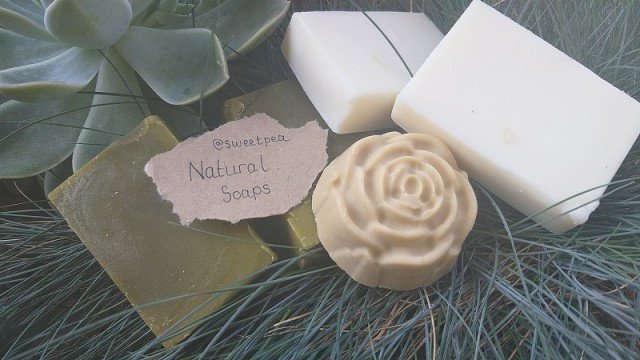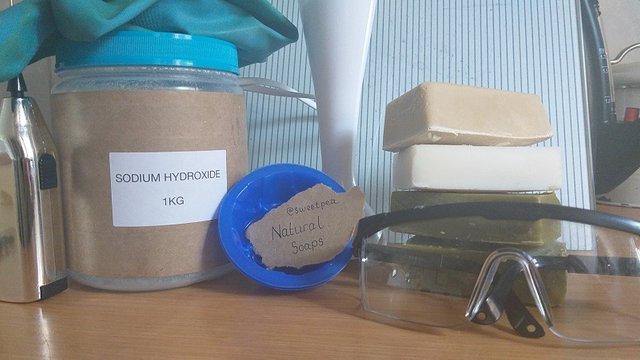02: Learn How To Make Your Own Natural Soap – Stocking Up On The Essentials
If you are looking to pick up a new hobby or want to convert to a healthier and toxin-free lifestyle, then this post is just for you! Natural soap-making is a whole lot of fun! You get to try out different recipes and you will gain a whole new appreciation for nature and its abilities.
In my first post, we discussed how I developed my passion for this craft and we also took a look at the common terminology used by avid soap-makers. In this article, we will take the process one step further and we will discuss the equipment and ingredients required to make a successful and a 100% natural hard bar of soap.

To start, I would like to highlight soap’s main ingredient – Lye (also commonly referred to as sodium hydroxide).
What Is Lye?
Lye is a caustic product and it can your skin if it comes into direct contact with it. Take note that lye is only dangerous in its raw form – once it has gone through the saponification process then it is no longer harmful to the skin.
Essentially soap cannot be made without lye. This ingredient is what makes soap, soap! While some may argue that because of the caustic properties that it is not natural - this is not true.
Lye is essentially table salt that has been dissolved in water. Electrodes are then used to introduce electricity to the solution. This, in turn, creates chloride, hydrogen, and lye.
In my next post, we will take a more in-depth into lye, how it works, and why we definitely regard it as a natural product within the soap-making industry.
The Basic Soap-Making Essentials
To make a safe, luxurious, and ultimately cleansing bar of soap, you will need to have the following ingredients at hand:
- Lye crystals
- A base or carrier oil (olive oil, coconut oil, grapeseed oil, sunflower oil, etc.)
- Water
Essential oils are optional and can include:
- Tea Tree Oil
- Lavender Oil
- Melissa Oil
- Eucalyptus Oil
- Chamomile Oil
- And so on…
I also like to add other natural ingredients to my soaps. For example:
- Activated charcoal is great for acne and detoxing
- Shea and Cocoa butter are great moisturisers
- Salt granules help with exfoliation
- Green tea helps to soothe skin
- Lemon helps to make a great “kitchen” soap
When it comes to making soap, feel free to experiment! You can almost anything to your mixture (as long as it is natural).

What Equipment Will You Need?
Apart from the ingredient needed to make soap, you will also need to invest in some equipment. While you might already have these items in your kitchen, I suggest you invest in separate tools for your soap workshop (due to the chemical nature of the lye).
You will need the following:
- Two plastic or stainless-steel bowls
- A pot for melting solid oils in
- A long-handled plastic spoon
- A digital scale
- Rubber gloves
- Safety glasses
- An assortment of measuring cups
- Plastic or silicone molds
While you wait for my first entry, you can purchase everything you need to make your first batch of soap.
Next in the line-up will be –
03: Learn How To Make Your Own Natural Soap – An In-depth Discussion On Lye
Index:
01: Learn How To Make Your Own Natural Soap – Introduction and Terminology
